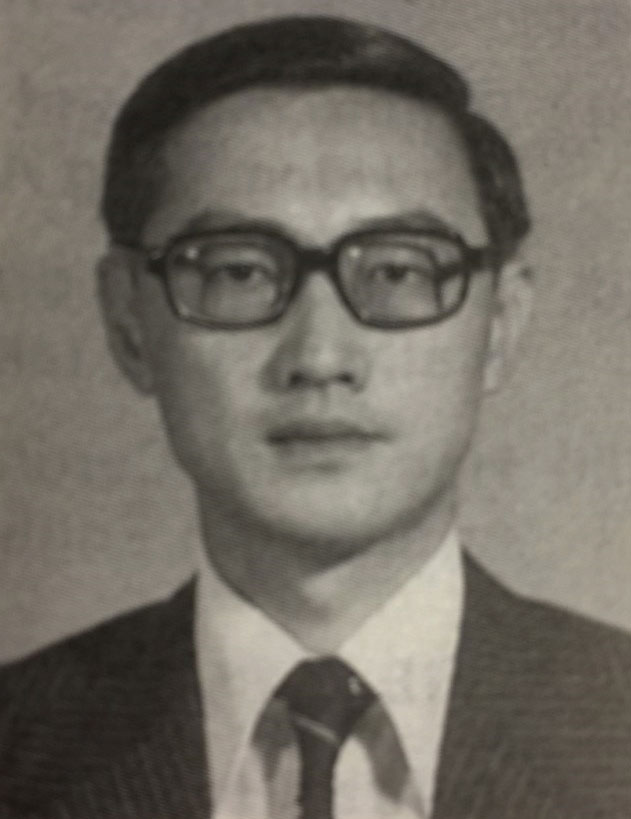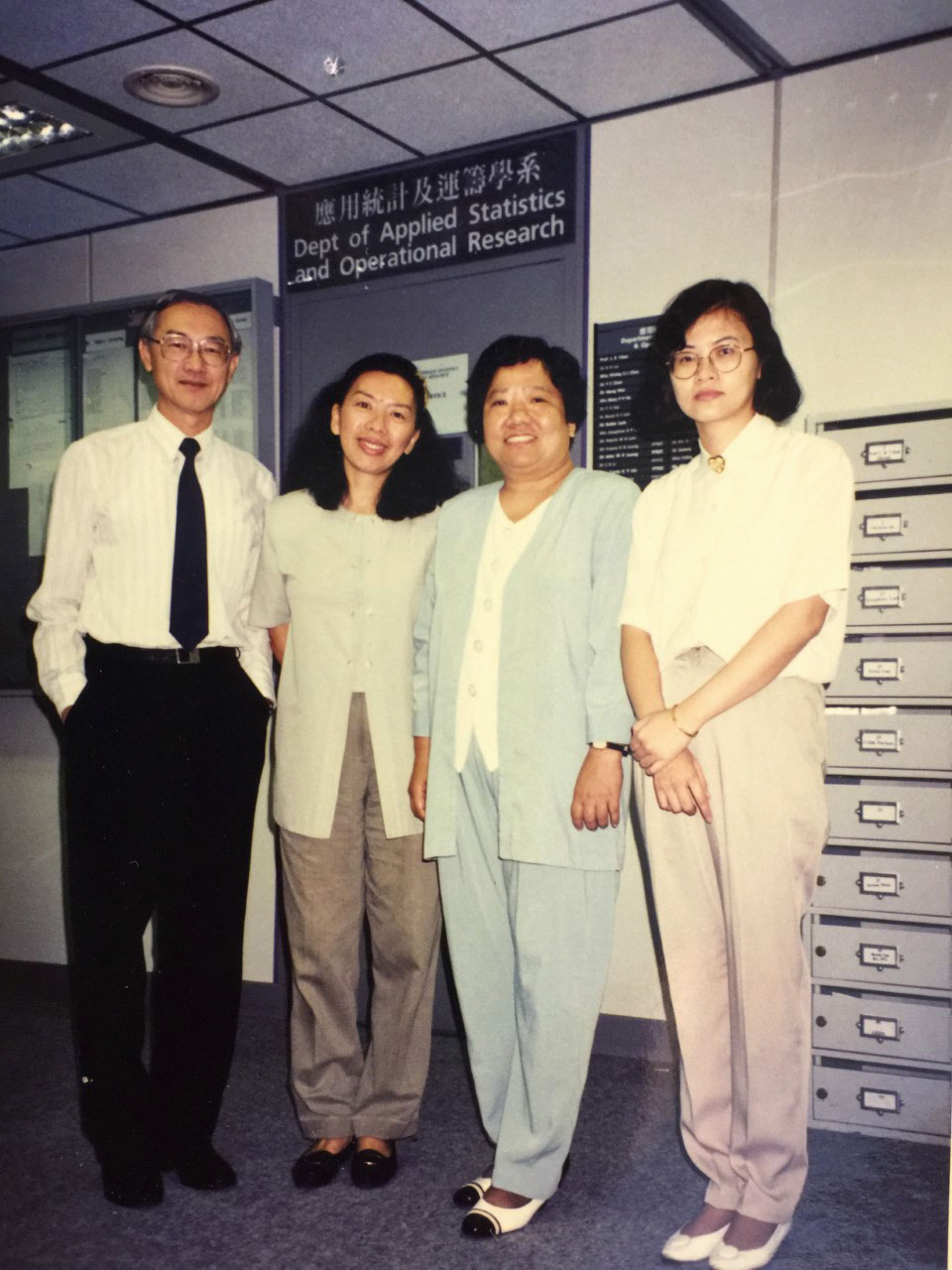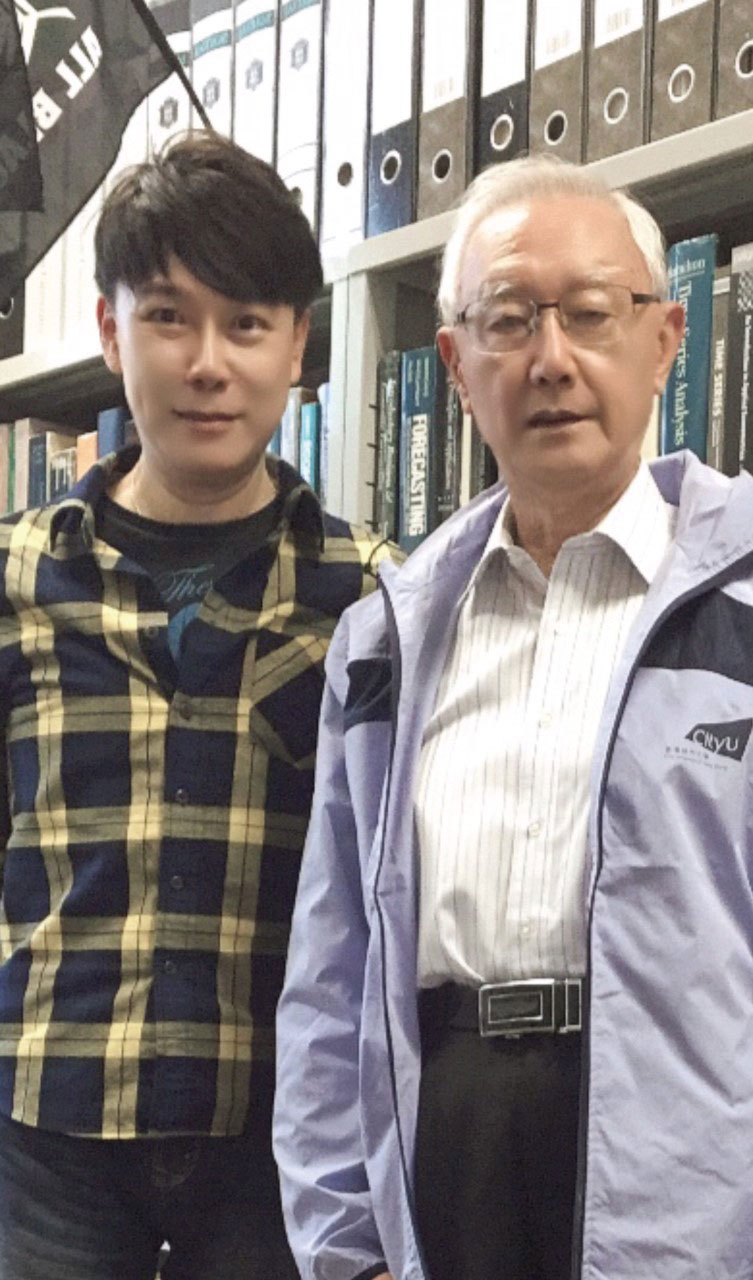Throughout its 37 years of existence,
the Department of Management
Sciences has been known by
a number of different names:
Mathematics and Science (1984-
1987), Applied Mathematics (1988-
1991), Applied Statistics and
Operations Research (1992-1997),
before finally adopting its present
name of Management Sciences in
1997.
Reading the history of the
department, we should all be grateful
for, and be proud of, the leadership
provided by Professor Wai-kee
Kam, our Head of Department from
its inception in 1984 until 1993,
when Professor Kam assumed the
role of Pro-Director at the then City
Polytechnic of Hong Kong. Professor
Kam retired in 1995.
The changes experienced by
the department and university
under Professor Kam's 11 years
of leadership were enormous,
including the introduction of degree
programmes in 1988, the formation
of the Department of Applied
Statistics and Operations Research
within the Faculty of Business
following a split in the Department
of Applied Mathematics in 1991,
and the transformation of City
Polytechnic to become City University
in 1994. In the late 1980s, the MS
Student Society set up the Kam Wei
Kee (Basketball) Trophy to honour his
enduring contribution. The trophy
remains up to the present day an
annual award of the MS Student
Society.
The hallmark of Professor Kam's
career is a commitment to education
and service to the university. I never had the privilege to work with
Professor Kam, but in my second
month as the Head of Department, I
had the honour to interview him, our
department's founding Head. Despite
being over 85 years of age, Professor
Kam's enthusiasm was infectious.
The interview below took place at
the Bistro Canteen on 1 December
2020, and was transcribed with the
assistance of Ms Teresa Ng.
Professor Wai-kee Kam in 1984
What prompted you to join the
City Polytechnic of Hong Kong
in 1984?
In 1982, the Hong Kong
Government began planning a
second polytechnic with a capacity
of 8000 full-time students. The
City Polytechnic of Hong Kong was
formally established on New Year's
Day, 1984, and I remember that
Sir Edward Youde, the Hong Kong
Governor at the time, officiated
the Inaugural Ceremony. City
Polytechnic was initially housed in
Argyle Centre Tower II in Mongkok
while the campus in Kowloon Tong
was being planned out.
When did you become head of
department?
I became the Head of the
Department of Mathematics
and Science in October 1983,
two months before the formal
establishment of the City
Polytechnic. Prior to that, I was
the Acting Head of Applied
Mathematics at the Hong Kong
Polytechnic. Several of my former
colleagues at the Hong Kong
Polytechnic, including Teresa Ng and
H.P. Lo, also joined City Polytechnic
at about the same time as I did. In
the ensuing years I recruited others
like Iris Yeung, Y.V. Hui, Teresa Ling,
S.K. Tse, Y.C. Chan, Geoffrey Tso,
C.K. Li, Sammy Yuen, Allen Ng,
Josephine Lam and Carrie Lin.
Can you tell us about the
department's teaching
programmes under your
leadership?
In 1984, City Polytechnic had no
faculties or colleges. There were only six departments: Accountancy,
Business and Administration,
Computer Studies, Languages,
Mathematics and Science, and
Social Administration. The role
of my department (Mathematics
and Science) was to teach
mathematics, as a "supporting"
subject to students of other
departments. In 1985, we began
offering a Professional Diploma in
Mathematics and Management,
emphasising operational research,
statistics and computing methods
and their applications in business.
How large was the polytechnic
at that stage?
By then, the City Polytechnic
had grown to include eight
departments, including the
Departments of Building and
Construction and Electronic
Engineering. In 1988, we changed
our name to Department of
Applied Mathematics, to distinguish
ourselves from the new Department
of Applied Science that emphasised
physics and instrumentation
systems and techniques. In the
same year, we also began offering
a degree programme, the BA in
Quantitative Analysis for Business
and a Higher Diploma in Applied
Statistics. A year later, in 1990,
we started planning the MA in
Quantitative Analysis for Business
and BA in Applied Statistics.
From left to right: Professor Waikee Kam, Ms Teresa Ng, Dr Teresa Ling and Dr Iris Yeung, in 1992
Back then, very few statisticians
and operations research
analysts found their home in a
business school. What gave you
the vision to start a Department
of Applied Statistics and Operations Research within a
business school?
By 1992, City Polytechnic had
thirteen departments. This
expansion prompted senior
management to adopt a new
structure, whereby the thirteen
departments were grouped under
three faculties: Business, Science
and Technology, and Humanities
and Social Sciences. Our teaching
programmes in mathematics always
had a business focus. We decided
therefore to join the Faculty of
Business. The name "Applied
statistics and operations research"
became a natural choice for the
name of the new department
given that these two fields –
statistics and operations research
management, had been the main
thrust of our BA, MA and Higher
Diploma programmes. Some of the
mathematicians in the Department
of Applied Mathematics, e.g.,
Daniel Ho and Lawrence Wu,
decided not to be part of the
Faculty of Business but to join the new Department of Mathematics
within the Faculty of Science and
Technology.
In retrospect, I think that paved
the way to our department
today. Our department is very
unique for business schools.
Not many business schools in
the world have as large a group
of statisticians and operations
research analysts as we do. I
really admire your vision to set
up this department in the
1990s.
I have to say I am very impressed
with the development of the
Department of Management
Sciences. We had a humble
beginning. When we started,
we did not even have our own
degree programmes, let alone
any talk of doing research. I could
never have imagined that the very
modest teaching department in a
small polytechnic I helped set up
nearly 40 years ago would one day
become the best in Asia and among
the top-30 in the world in terms of
research. This is an extraordinary
accomplishment, and I feel proud
and am very happy to share in this
achievement.
Is there anything in your career
at CityU that you would single
out as the most memorable or
stimulating?
In my day, earning accreditation
was very important. Back then,
the City Polytechnic had no power
to self-accredit its programmes.
Between 1984 and 1990, our
teaching programmes were validated by the Council for
National Academic Awards (CNAA)
in the UK. Whenever we proposed
a new programme, such as the
BA in Applied Statistics, we had
to submit the proposal not only
to the directorate at the City
Polytechnic but also to members
of the CNAA in the UK, for their
reviews and eventual validation.
Existing programmes and courses
also required periodic reviews by
the CNAA. The validation process
would involve the UK validation
committee members flying to Hong
Kong to have a week-long meeting
with us.
How rigorous was the
validation process?
They scrutinised our proposal very
carefully, asked many questions
during the meeting and almost
always requested revisions to our
original proposal. Typically, before
the external reviewers arrived, we
would spend time thinking about the
potential questions and preparing
the answers beforehand – somewhat
like a "mock trial." Although that
involved a lot of hard work, I took
great pleasure and enjoyment
working with my colleagues. There
was a good deal of satisfaction
seeing our courses and programmes
validated in the end. Then things
simplified in 1991, when Hong Kong
established its own accreditation
agency, the Hong Kong Council
for Accreditation of Academic
and Vocational Qualifications
(HKCAAVQ). All validations between
then and 1994 were done locally
through the HKCAAVQ.
The City Polytechnic gained
self-accreditation status shortly
thereafter?
Yes, in 1993, the prospect of the
City Polytechnic's gaining selfaccreditation
status led to a lot of
excitement on campus. I was Pro-
Director of the polytechnic at the
time, and I remember that there
were institutional review visits to
the Polytechnic by the University
and Polytechnic Grants Committee.
The Committee members then
flew to London to consult their
UK counterparts before reaching
a final decision. In the end, things
sailed through, and that was like
a quantum leap for us. The selfaccreditation
status we achieved
in 1994 gave us more flexibility
to introduce new programmes
and courses without having to
seek external approval. The past
procedure where everything
required external scrutiny was
tedious and time consuming.
Shortly thereafter, the polytechnic
also achieved university status and
changed its name to City University
of Hong Kong.
Do you have any general advice
to give to educators and
students?
Hong Kong university students
typically focus on their subject
studies. I believe that a successful
university education, in addition to
providing students with specialised
skills, should help students build
some bedrock fundamental skills
and help them learn on their own,
adapt to changing environments
and develop the ability of teamwork. The fundamentals are
language and communication
skills, a broad knowledge and the
understanding of different cultures.
Our teaching programmes should
be multidisciplinary enough to help
students see the world in a broad
context with a global view. A broad
education would help students
compete in the workplace, and
to enjoy modern living. Only after
one learns, then one realises that
there is more to learn in an everchanging
world. We hope that our
graduates can be broad-minded, and well-trained professionals with
an elevated vision to see the bigger
picture. Understanding different
cultures is also important – it can
help one's mind think in more
diverse ways and promote coexistence
that will go a long way to
create a better world.
One thing remains unchanged
in the long and colourful career
of Professor Kam: he is a
gentleman – a true gentleman
in both the English and Chinese
sense of the word.
Professor Wai-kee Kam and Professor Alan Wan in 2020



